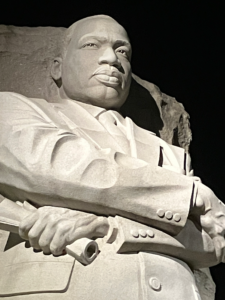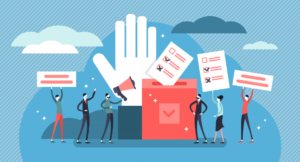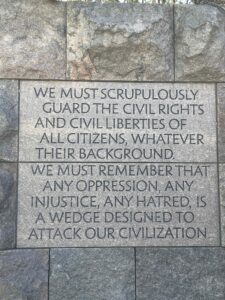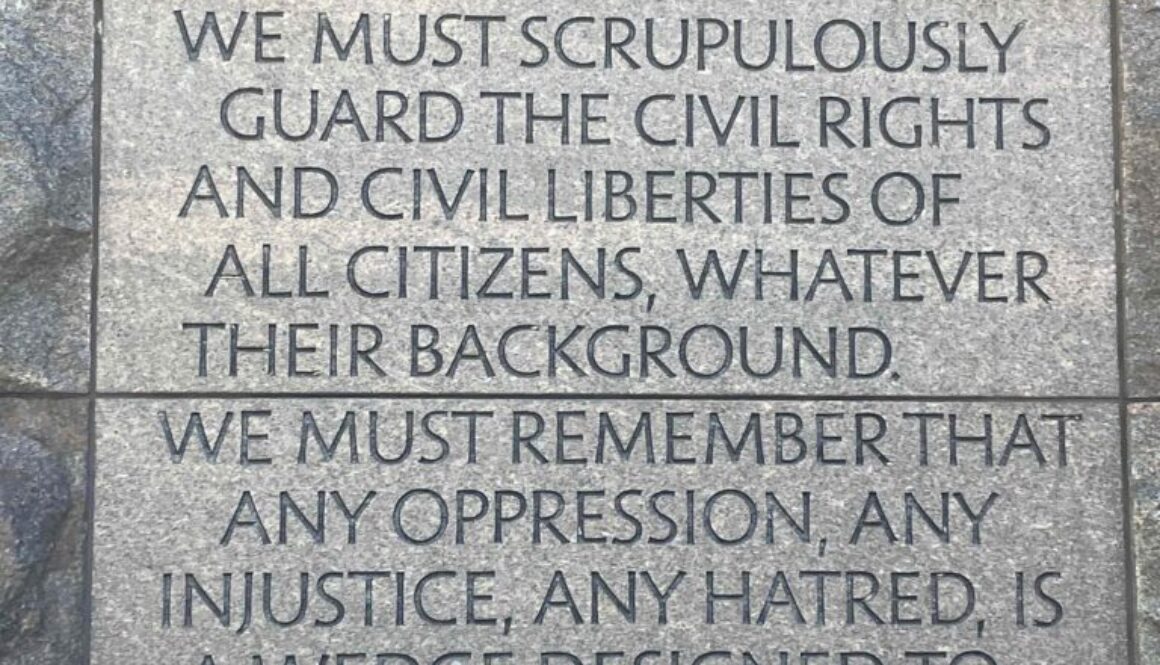Whose Power Is It Anyway?
 I learned in school that our system of government is based on the idea that we grant power through our electoral system. Every citizen is entitled to vote for the candidates that best represent that voter’s preferences, and the candidates who earn the most votes are entrusted with certain powers according to the office to which they were elected. In the legislative bodies, whether a local city council or the US Senate, laws are enacted and policies adopted based on majority rule – the ideas that have the support of the majority of elected officials in that body become part of our societal and legal framework. When I was on the city council in my town, I could vote on budgets and zoning changes and capital investments within the limits of my city. I did not have the authority to intervene in school board, county, state, or national level issues other than expressing support or opposition. The power to act at those levels of government were reserved to the people elected to those offices.
I learned in school that our system of government is based on the idea that we grant power through our electoral system. Every citizen is entitled to vote for the candidates that best represent that voter’s preferences, and the candidates who earn the most votes are entrusted with certain powers according to the office to which they were elected. In the legislative bodies, whether a local city council or the US Senate, laws are enacted and policies adopted based on majority rule – the ideas that have the support of the majority of elected officials in that body become part of our societal and legal framework. When I was on the city council in my town, I could vote on budgets and zoning changes and capital investments within the limits of my city. I did not have the authority to intervene in school board, county, state, or national level issues other than expressing support or opposition. The power to act at those levels of government were reserved to the people elected to those offices.
 I am deeply troubled these days by the increasingly frequent attempts by elected officials to intervene way outside the boundaries of their authority. Whether it’s congressional committees threatening state prosecutors or senators threatening judges, it’s not acceptable. What’s even worse is when elected officials, once they get into power, try to change the system and replace or undermine legitimate opposition so they can hold onto power even when they would lose a fair and open contest of ideas in a free and open election.
I am deeply troubled these days by the increasingly frequent attempts by elected officials to intervene way outside the boundaries of their authority. Whether it’s congressional committees threatening state prosecutors or senators threatening judges, it’s not acceptable. What’s even worse is when elected officials, once they get into power, try to change the system and replace or undermine legitimate opposition so they can hold onto power even when they would lose a fair and open contest of ideas in a free and open election.
It is a sign of weakness, not strength, when a so-called leader is afraid to put their ideas and their track record to a fair test. In Israel, the prime minister is trying to take control of the court system while he is under active indictment. In Georgia, the state legislature is making the district attorney subject to recall based on politics while there is a prosecution underway that the legislators want to block. In other states, gerrymandered voting districts are created to improve the chances of re-election for those already in power.
 But here’s the thing. Those people taking those actions were elected. We, the citizens, by voting or not voting, by engaging or not engaging in the political process, we gave them the power they are now using to further their own interests and to undermine our democracy. Yes, the system is rigged. It favors those in power. It’s hard to beat an incumbent. But it can be done and it must be done.
But here’s the thing. Those people taking those actions were elected. We, the citizens, by voting or not voting, by engaging or not engaging in the political process, we gave them the power they are now using to further their own interests and to undermine our democracy. Yes, the system is rigged. It favors those in power. It’s hard to beat an incumbent. But it can be done and it must be done.
I cannot imagine how some members of Congress got elected – who in their right mind would vote for Marjory Taylor Green or Lauren Boebert? But somehow, they got more votes than their opponents. Yes, there is deception and misinformation and voter suppression. But there is also truth and justice and activists willing to do the hard work of registering and educating voters. When people who are elected and given power use that power for the greater good, to improve the lives of people, and to care for those in need, we can do great things and rebuild the torn social fabric in our country and beyond.
 It is hard work. It is dangerous work. But I refuse to accept that we have to keep giving power to people who consistently block sensible gun safety measures, like a ban on assault-style weapons and large ammunition sales and universal background checks. This is not what the people want. We know that most people want better gun safety. Nobody wants to fear sending their children to school. The majority see the folly of expecting teachers to take on police responsibilities when we have seen even trained police officers failing to protect school children from armed shooters.
It is hard work. It is dangerous work. But I refuse to accept that we have to keep giving power to people who consistently block sensible gun safety measures, like a ban on assault-style weapons and large ammunition sales and universal background checks. This is not what the people want. We know that most people want better gun safety. Nobody wants to fear sending their children to school. The majority see the folly of expecting teachers to take on police responsibilities when we have seen even trained police officers failing to protect school children from armed shooters.
We have the power if we choose to use it. We can do better than we’re doing now. In the 2022 election, we showed some of the potential that grass roots activism can achieve. We have to keep it up and do more.
